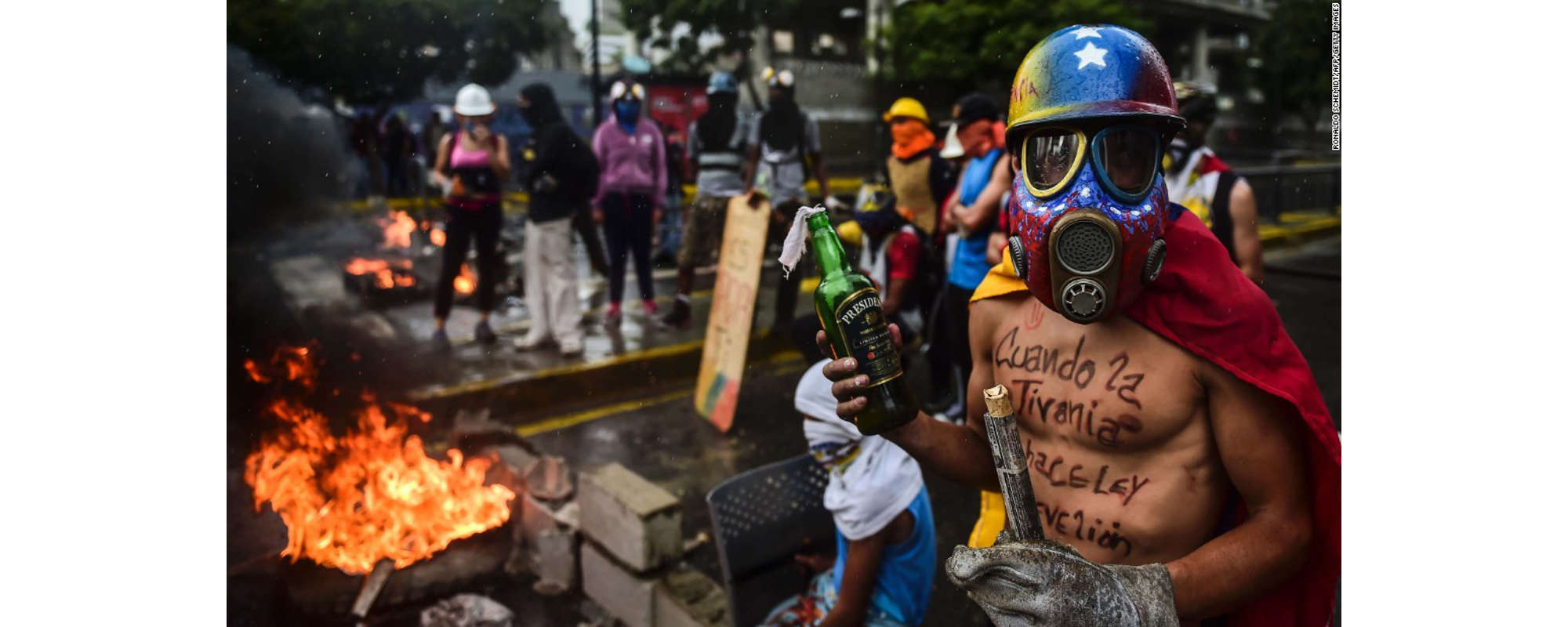Why Venezuelan Unrest Will Disrupt More Than Your World Cup Bracket
Chaos continues to spread in Latin America as the situation in Venezuela descends into authoritarian rule. The foundation of the current crisis was set nearly two decades ago in the late 90's when former President Hugo Chavez came into power bringing to fruition a 'Bolivarian Revolution' that brought with it a new constitution, socialist and populist economic and social policies funded by high oil prices, and increasingly vocal anti-US foreign policy.
Venezuela sits one of the world’s largest oil reserves and like many oil producing nations lacks infrastructure to adequately redistribute wealth. As oil prices continued to soar, so did Venezuela’s elite as they continued to become increasingly wealthy.
During the Bolivar Revolution Chavez brought with him a vehement anti-US sentiment which naturally attracted the likes of both Russia in China. Arguably the greatest threat the US world influence is Russia. In the early 2000's the Kremlin forged serious oil and gas ties with the Caracas regime. Venezuela has also forged several enduring economic agreements with China in this time frame.

However, like all national revenue tied to oil, the drop in World oil prices in the early 2014 caused a massive social redistribution in Venezuela’s population. Programs that were funded by the high oil prices were cut and with it created an exponential rise in the inflation rate. The regime did little to combat this and continued to print money. The latest figures as of April 2018 showed the current inflation rate of 13,379%. To give you perspective a 2% inflation rate is typically projected in the United States. 'Merica.
When Chavez died in 2013, he hand-picked his successor: current President Nicolas Maduro. It holds true that when countries relatively ignore the democratic process and hand pick successors, it does little to combat the corruption which plagues the institutions required to function. The infrastructure of Venezuela is decaying along with regard for basic human rights. As Americans we don't believe in humoring autocracies that violate human rights, and the violence now witnessed on the streets of Caracas should be of concern to the United States for several reasons.
The US and Venezuela do maintain economic ties as we are the number one consumer of Venezuelan oil, but that's tenuously held due to the political situation in Venezuela. Any sanctions imposed by the United States would cripple an already broken country even more. If the US slaps sanctions on the Maduro government, that means the US will shop elsewhere for oil. When the US shops elsewhere for oil then that means it pays more and if the government pays more...you pay more.
Not surprisingly, in May of 2018 President Maduro "WON" another term in office...now where have we seen this before? US sanctions only drive countries like Venezuela further into the hands of challengers to American world influence: Russia, China, Iran and North Korea.
Caracas is 3 hour flight to Miami, so in addition to being an attractive ally economically Venezuela has a lot to offer rising powers geographically as well. Anti US sentiment has always been a rallying cry for Latin American dictators...think about Fidel Castro and the issues his ties with Russia brought upon the US in the 60's.
Venezuela matters more to the average American in their daily lives than unrest in Iraq or Afghanistan. Anti-US sentiment abroad is one thing, Anti-US sentiment in a nation rich with oil and ties to Russia within missile range of US soil is another. Just ask John F. Kennedy.





